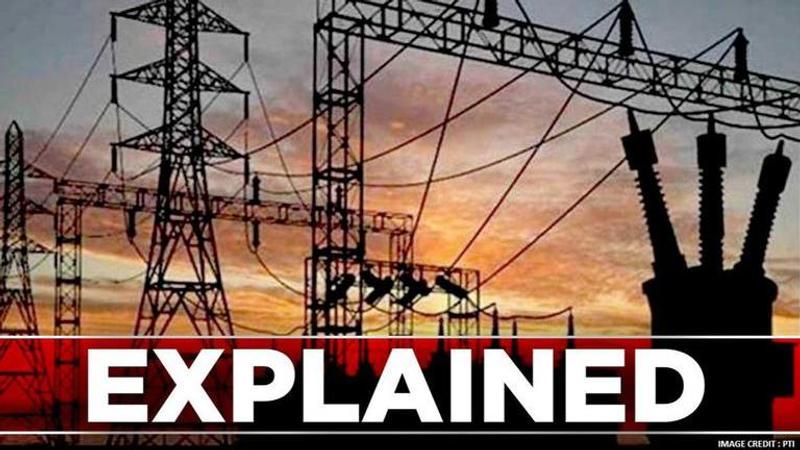Published 07:09 IST, April 5th 2020
Explained: Here's how power system will be managed during lights-out on Sunday
A 9-minute lights-out by most of the households on Sunday evening can potentially collapse the grid due to sudden drop and then a quick surge after the event.

A 9-minute lights-out by most of the households on Sunday evening can potentially collapse the grid due to sudden drop and then a quick surge after the event. But to manage the dramatic changes in electricity and its impact on the grid, the government has drawn an elaborate plan to manage it. Following are the broad plan of action.
Lights in all essential services are not to be switched off
Electrical appliances such as AC, fans, TVs, refrigerators are not supposed to be switched off and only household lights are to be switched off from 9 pm to 9.09 pm on Sunday. Also, lights in all essential services, including hospitals, police stations and manufacturing facilities as well as street lights are not to be switched off.
These two steps will ensure sizeable household demand continues irrespective of lights-out.
Power System Operation Corp Ltd - the agency responsible for managing the grid - has mapped all India lighting load and estimated such demand at 12-13 gigawatts (out of total consumption of 125-126 GW).
Unlike normal operation, this reduction in load of 12-13 GW would happen in 2-4 minutes and recover nine minutes later -- within 2-4 minutes. This sharp reduction in load and recovery, which is unprecedented, will need to be handled through hydro and gas resources.
The drop in load and subsequent rise will be managed by using hydro and gas generators that require the least amount of time for ramp-up. All regional entities have been advised to maintain their interchange with the grid as per schedule. Distribution companies have been advised to avoid any feeder switching operation from 20:00 to 22:00 hrs.
Also, control room staff at national and all regional/ state load centres will be strengthened and grids will be closely monitored to tackle any contingency.
State load distribution centres have asked distribution companies to ensure that substations and housing society/ residential apartments' main supply is not be switched off at feeder/mains level. During the evening peak hours -- 18:10 to 20:00 hrs -- hydro generation will be reduced and conserved for providing flexibility during 21:00 hrs event. During this time, thermal and gas generation will be scheduled in a manner so as to manage the peak.
Subsequently after the peak hours, at thermal Inter-State Generating Stations(ISGS) generation would be gradually reduced to the near technical minimum level of 60% by 20:55 hrs and simultaneously, hydro generation will be increased to maintain the load generation balance.
Hydro generation and gas generation will be ramped down starting from 20:57 hrs. keeping a watch on the system frequency. The hydro units will be kept rolling at 010% of the rating and not to be disconnected during this period. Gas station will be ramped down to the minimum level.
Ramping up of thermal machines will be carried out from 21:05 hrs onwards. Further from 21:09 hrs, onwards hydro generation will be ramped up to meet increase in load. After stabilisation of system parameters, hydro units may be withdrawn. Pumped storage hydro units will be brought in pumping mode by 20:45 hrs and will be kept in service till 21:09 hrs. After that, machines will be withdrawn from the grid.
Wind generators of ISGS/ intrastate level will be advised to automatically disconnect the wind generating plants and units will be synchronized after 21:30 hrs. To avoid voltage fluctuation, all India grid frequency may be kept at the lower side of the IEGC band i.e 49.90 Hz from 20:30 hrs onwards in view of anticipated frequency rise due to demand reduction at 21:00 hrs.
All defence mechanisms such as Under Frequency/df/dt relays and automatic demand management systems will be in service and healthiness will also be ensured.
Voltage Control measures - Since COVID-19 containment measures implemented from March 25, 2020, nearly 220-240 lines at 400 kV voltage level and above are kept in an open condition for voltage control. System voltages have been within the Indian Electricity Grid code (IEGC) band. Line, where voltage level is expected to rise by more than 0.01 pu, have been identified.
While all transmission lines, line reactors & bus reactors will be readied by 20:00 hrs for stable voltage, all reactors will be put in service wherever required. Also, capacitors at the distribution level will be kept off to maintain the voltage at nominal.
Updated 07:09 IST, April 5th 2020




